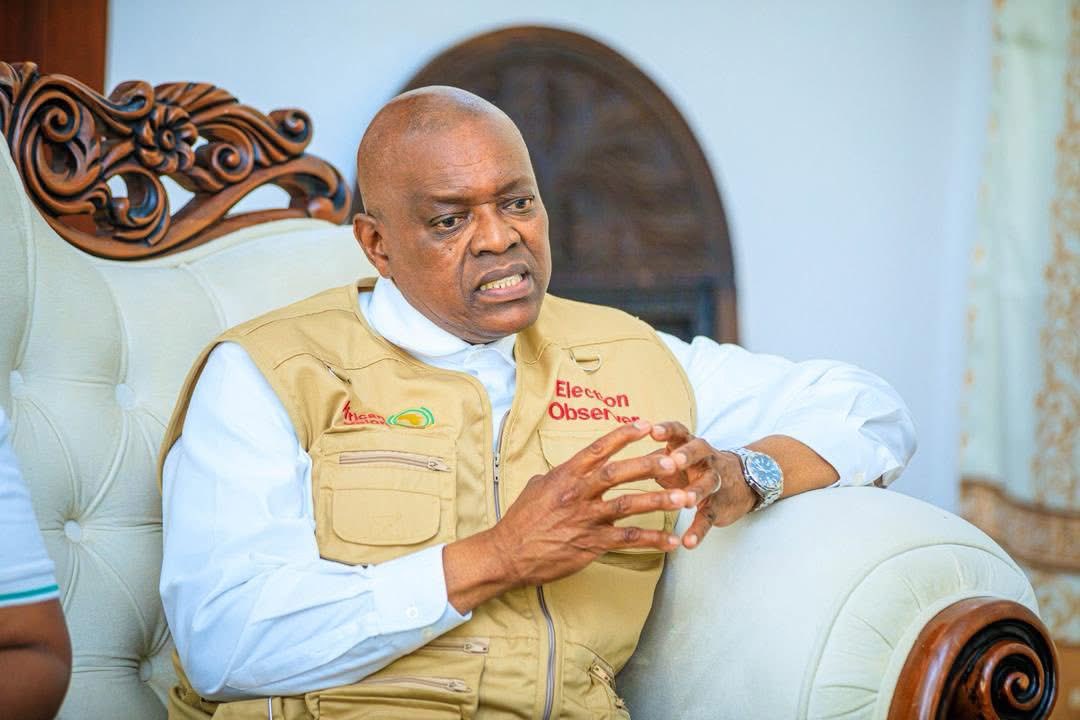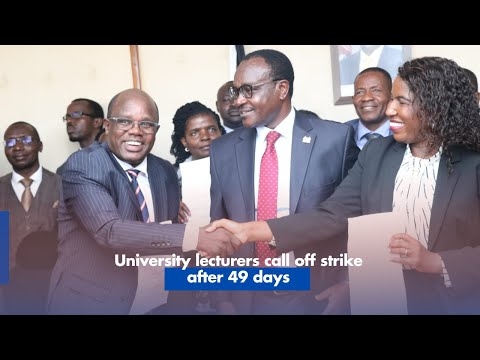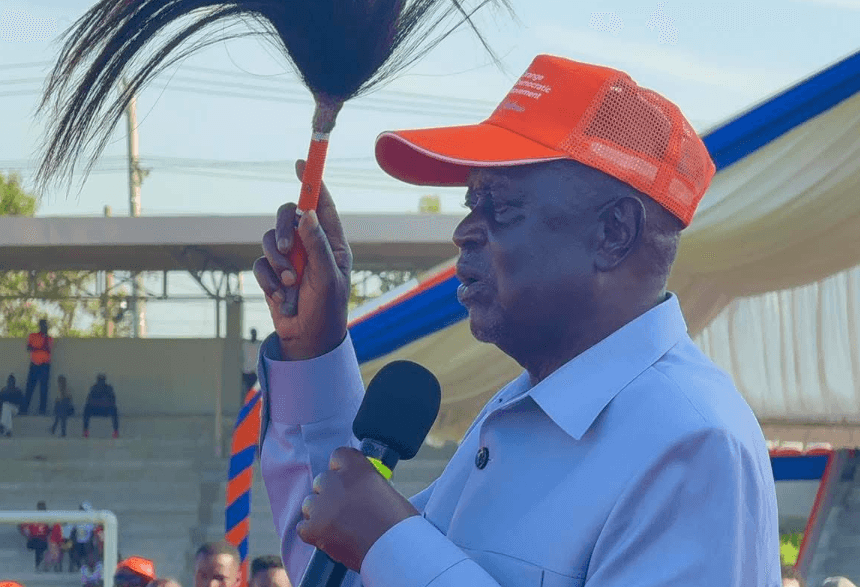
 AU Observer mission head Mokgweetsi Masisi /HANDOUT
AU Observer mission head Mokgweetsi Masisi /HANDOUTThe African Union (AU) has slammed Tanzania over last week’s General Election, in which Samia Suluhu Hassan won with an almost 98 per cent margin.
The AU Election Observer Mission (AUEOM) has declared that the October 29th polls did not meet the democratic principles as championed by the continental body.
In a damning assessment, the AUEOM has reported witnessing incidents of ballot paper stuffing, voters being given more than one ballot paper, and even voters being given ballots without proper identification.
“The Mission also observed some ballot stuffing at several polling stations, where voters were issued multiple ballots to vote, compromising election integrity,” the report states.
Most of these instances were noted in polling stations where only the presidential ballot box was set up. Such stations did not appear to be manned by political party agents, only having INEC officials, including in Zanzibar.
While voting earlier in the day proceeded slowly but efficiently at most polling stations visited, some observers noted that polling stations with presidential ballots did not have party agents or observers.
“At some of these stations, certain voters were allowed to vote without their identities being checked on the voter register. These voters were also given multiple ballots to vote in full view of observers,” the report states.
The AU team that was led by former Botswana President Eric Mokgweetsi Masisisi stated, “The mission concluded that the 2025 Tanzania General Elections did not comply with AU principles, normative frameworks, and other international obligations and standards for democratic elections."
The Masisi team report dated November 5, 2025, added that the environment surrounding the elections—before, during, and immediately after—was not conducive to peaceful conduct and acceptance of electoral outcomes.
The preparedness level of the electoral commission and other electoral institutions was inadequate to address the challenges that compromised the integrity of the elections, according to the mission.
The Mission deployed 72 observers across 17 regions to cover 176 constituencies nationwide. On Election Day, the observers visited 352 polling stations to observe the opening, voting, closing, and counting procedures in 202 urban (57.5%), 149 rural (42.5%) areas.
The electoral environment in the morning was generally calm; however, the situation shifted to violent protests, gunfire, road closures, and tyre burning in areas such as Dar es Salaam, Mbeya, Mwanza, Kagera, Dodoma, Kigoma, Tebora, Buhungwa, Singinda, among others.
“Our observers encountered serious security challenges as they could not return to Dar es Salaam immediately due to a sudden imposition of a curfew,” Masisi said, adding that some of his staff were stranded in various places.
“The Mission also experienced a shutdown of internet services, which occurred from around 11:00am on 29 October 2025. This affected the Mission’s communication, as well as the transmission of data and reporting from its observers.”
AUEOM’s report has rendered credence to the doubts cast on the astronomical figures that Suluhu and CCM received, as observers witnessed very low voter turnout in most polling stations.
Most stations visited were virtually empty two hours before the close of polls, suggesting that voters were limited and organised to vote in the morning.
During the campaigns, the Masisi-led team reports that across the country, numerous media outlets were deregistered or banned, and journalists worked under restrictive reporting guidelines that curtailed press freedom and public access to diverse information.
“Traditional public media, especially radio, television, and print, showed a discernible bias in favour of the ruling CCM, restricting visibility for opposition parties and candidates. These issues highlighted gross inconsistencies with Article 17 of the ACDEG, which advocates for equitable access to both public and private media for all political actors during elections.”
The Mission says it noted with concern a total internet shutdown in Tanzania during the mid-stage of the elections, which persisted until the departure of the AUEOM on 3 November 2025.
“This unfortunate development hindered citizens' access to information and limited election observers' ability to fully observe and report on crucial elements of the election process, such as voting, closing of polls, and counting of votes.”
Some of the events leading up to the 2025 General Elections therefore conflict with the African Union principles on the right to and freedom of participation in elections, with the Mission citing the arrest and jailing of key opposition figures while barring others from participating.
This, according to Masisi, is a violation of Article 4(1)(2) of the ACDEG and Article 13(1) of the African Charter on Human and Peoples’ Rights (ACHPR), including the decision of the African Court on Human and Peoples' Rights.
“The Mission emphasises that regular elections without genuine competition and adherence to democratic principles result in voter apathy and ultimately lead to citizens' disengagement from political activities.”
“In this regard, the AUEOM underscores the importance of safeguarding political freedoms, ensuring equitable participation for all political actors, and fostering a conducive environment for competitive democratic elections.”


















